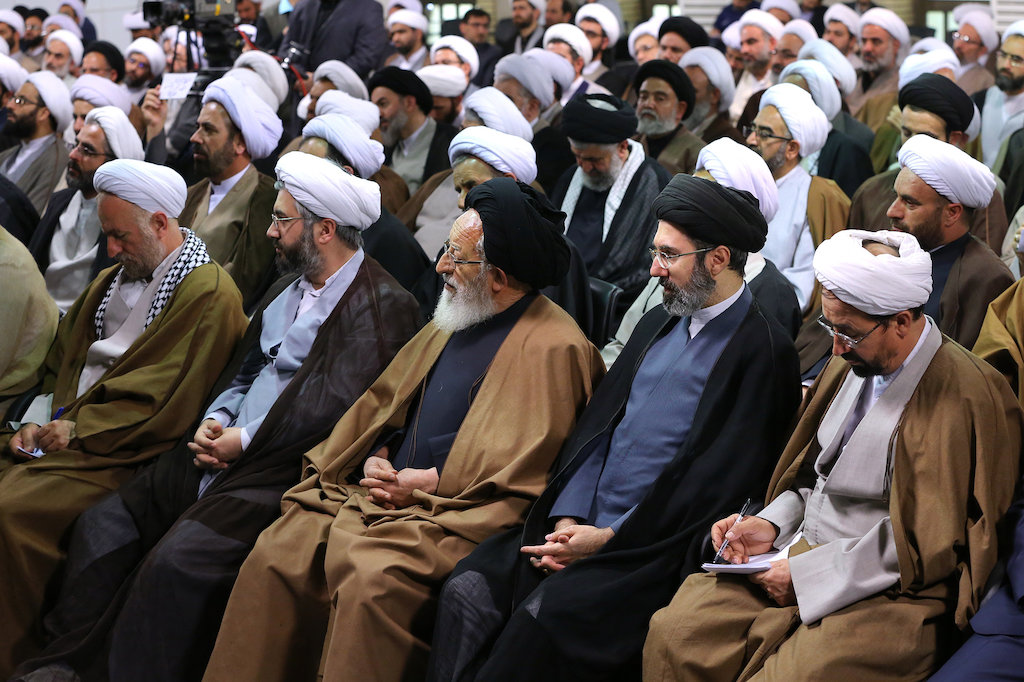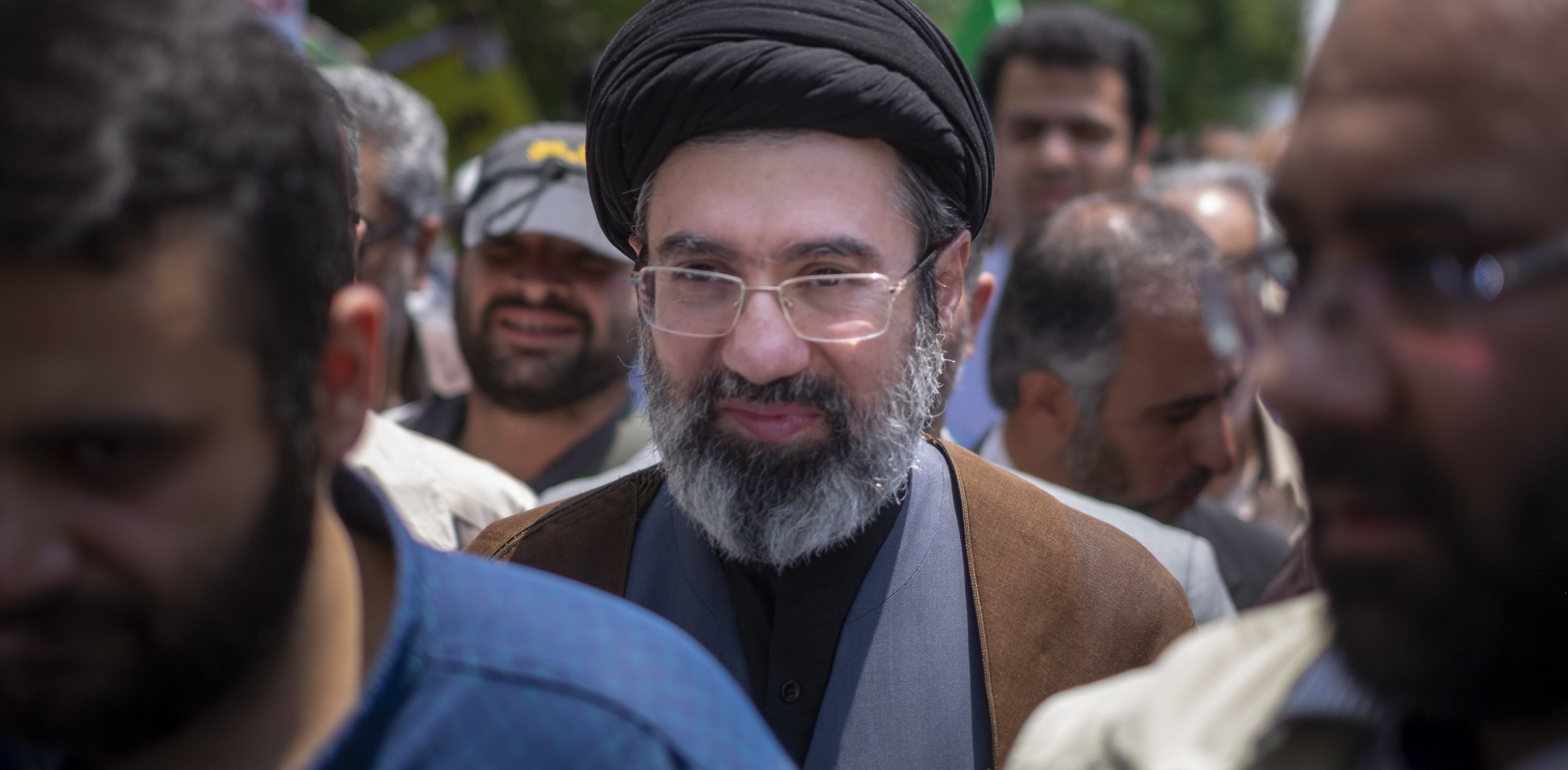Publications
INSS Insight No. 1644, September 18, 2022
In recent weeks, public debate in Iran has resumed regarding the possibility of transferring power after the death of the current Supreme Leader, Ali Khamenei, to his son Mojtaba. In the background of this debate is criticism of the idea of cultivating Mojtaba as a possible successor, sounded by the leader of the reformist opposition, Mir-Hossein Mousavi; a report on the promotion of Mojtaba to a high religious status with the rank of ayatollah; and an expression of support for his possible appointment as leader from one of the Friday prayer leaders. The possibility of the transfer of power to Khamenei’s son has already evoked severe public criticism on the ground that it contravenes the fundamental principles of the Islamic Revolution. At this point, it is too early to assess whether this scenario is indeed considered seriously. However, in the absence of a suitable consensus candidate to succeed Khamenei, it cannot be ruled out that the death of the current Supreme Leader may pave the way for a transition to an alternative governing model, including dynastic rule.
In recent weeks, public debate in Iran has resumed regarding the possibility that after the death of the current Supreme Leader, Ali Khamenei, power will be transferred to his son Mojtaba. This follows a publication (August 9, 2022) on the reformist website Kalemeh by the leader of the reformist opposition, Mir-Hossein Mousavi (who has been under house arrest since February 2011). In an introduction to a new Arabic collection of his statements, he warned of a "plot" on the part of the regime's supporters to pave the way for the nomination of Mojtaba as his father's successor. He referred to the rumors that have been circulating for years regarding Mojtaba's grooming as a possible successor and questioned whether the old [Iranian] royal dynasties of 2,500 years ago have returned to power, and why the regime's top officials do not deny these rumors if there is no truth in them.
Over the years, sources in Iran's opposition have pointed to Mojtaba, Khamenei's second son, as someone who enjoys great influence, is involved in sensitive issues, and participates in informal consultations in his father's office. In addition, the 53-year-old Mojtaba is considered to have good ties with the security-intelligence elite – and especially with the former head of the intelligence organization of the Revolutionary Guard, Hossein Taeb, who in June 2022 was removed from his position. These reports formed the basis of assessments regarding the possibility that Mojtaba will succeed his father when the day comes. Nevertheless, Mousavi's comment aroused much interest, especially in preparation for the periodic meeting in early September of the Assembly of Experts, which according to the Iranian constitution is responsible for appointing a successor to the Supreme Leader after his death.

A few weeks after the publication of Mousavi's statement, the website Rasa News, which is affiliated with the Shia religious establishment in the city of Qom, reported the beginning of student registration for a seminar in theology under the guidance of Mojtaba Khamenei at the Qom seminary. Although Mojtaba has taught theology for several years, the news aroused special interest due to the use of his title "Ayatollah," which may indicate his promotion from the religious status of Hojjat ul-Islam (a lower rank than that of ayatollah) to a higher religious status. Although Mojtaba was referred to as Ayatollah in several reports published in recent years in the Iranian media, the use of this title on a website associated with the religious establishment may indicate a possible intention to cultivate him as the next Leader.
Another possible confirmation of Mojataba's designation as a successor can be found in a response to Mousavi's statements by Mehdi Tajzadeh, a Friday prayer Imam in the city of Baharestan in the Isfahan province. In a sermon in early September, the hardline cleric praised Khamenei's son and presented him as a possible candidate who met the criteria required by law to serve as Leader. Tajzada called Mojtaba "a thorn in the side of the enemies of Islam and the West" and claimed that if the Assembly of Experts decides to appoint him as Supreme Leader, this will not point to a dynastic regime, because even after the death of the first Shiite Imam, Ali, his son, Hassan, was appointed as ruler to succeed him.
Mousavi's words evoked sharp criticism, mainly from the supporters of the regime in the conservative faction. Although most of the criticism was focused on his reservations regarding Iran's involvement in Syria and its support for the Assad regime, his treatment of the issue of the succession also resonated. The chairman of the culture committee of the Majlis, Morteza Agha-Tehrani, attacked Mousavi harshly and accused him of spreading lies. In an interview with the Fars news agency, the hardline politician said that those who disseminate false reports of this kind seek to harm the country, incite public opinion, and serve the foreign media and Iran's enemies. The editor-in-chief of the conservative daily newspaper Hamshahri, Abdollah Ganji, also took issue with Mousavi's words and pointed out that Mousavi did not provide any proof for his statements, similar to the claims made by him regarding the falsification of the results of the presidential elections in 2009.
The possibility of Khamenei's son succeeding his father has also evoked severe public criticism. An article entitled “Against Dynastic Rule,” published on August 1 by the reformist newspaper Ham Mihan, noted that a study of the Iranian Leader's statements over the years indicates his steadfast opposition to the transfer of power by inheritance. The article included a collection of Khamenei's statements, in which he voiced his rejection of this option and referred to the abolition of the monarchical rule as one of the outstanding achievements of the Islamic Revolution. The cleric Rashid Davoodi also expressed strong opposition to the transfer of power to Khamenei's son. In an interview to the Ansaf news website on September 7, he claimed that the transfer of power by inheritance is completely contrary to the basic principles of the Islamic Republic and to the concept of “guardianship of the Islamic jurist.” He emphasized that even if there is no legal impediment to appointing the Leader's son as his successor, and even if Mojtaba has the required qualifications to fulfill this role, it is not consistent with the essence of the Islamic Republic and the spirit of the constitution.
Against the background of the growing preoccupation with the question of succession, the concluding statement of the Assembly of Experts meeting also referred to the matter. Although the statement did not specifically refer to the possible appointment of Mojtaba as a successor, it did note the efforts on the part of Iran's enemies to weaken the Leader's status by "planting doubts" in the leadership institution and emphasized that the selection of the Leader is made solely according to the qualifications of the candidates.
In view of Khamenei's advanced age and increasing reports of his deteriorating health, the issue of succession has come up even more strongly in recent years. Although the responsibility for appointing his successor rests with the Assembly of Experts, it can be assumed that other power centers, such as the Revolutionary Guards and perhaps even Khamenei himself, will seek to play a role in determining his successor in order to preserve their interests in the coming era.
In recent years, several clerics who were previously identified as possible candidates to succeed Khamenei have passed away, including former president Akbar-Hashemi Rafsanjani (died in 2017); the former head of the judiciary, Mahmoud Hashemi Shahroudi (died in 2018); and senior cleric Mohammad Taqi Mesbah-Yazdi (died in 2021). Meanwhile, the name of the current President and former head of the judiciary, Ebrahim Raisi, was raised as one of the leading candidates to succeed Khamenei. His election as President in June 2021 marked another stage in his possible training for the leadership of the Islamic Republic, after the list of final candidates, approved by the Guardian Council, left him as the only candidate who had a real chance of winning the elections. However, at the end of a year of his presidency, Raisi is facing increasing criticism, even from conservative circles, due to his failure to deliver on his promises for economic improvement, and he is hard pressed to improve his public status and free himself from the image of a grey bureaucrat, which may make it difficult for him in a possible succession struggle.
At this stage it is too early to assess who may succeed the current Leader and whether the possibility of training Mojtaba as a possible successor is indeed seriously considered. In the absence of a suitable consensus candidate, it is not impossible that Mojtaba's name will come up as a candidate to succeed his father. This comes against the background of the growing autocratization of the regime, the increasing political involvement of the Revolutionary Guards and their transformation into a central force in the political system, and the suppression of competing factions of the ruling elite in order to fortify the conservatives' dominance in all government institutions. In view of these developments, the possibility that Khamenei's death may pave the way for a transition to an alternative governing model, including dynastic rule, cannot be ruled out.



